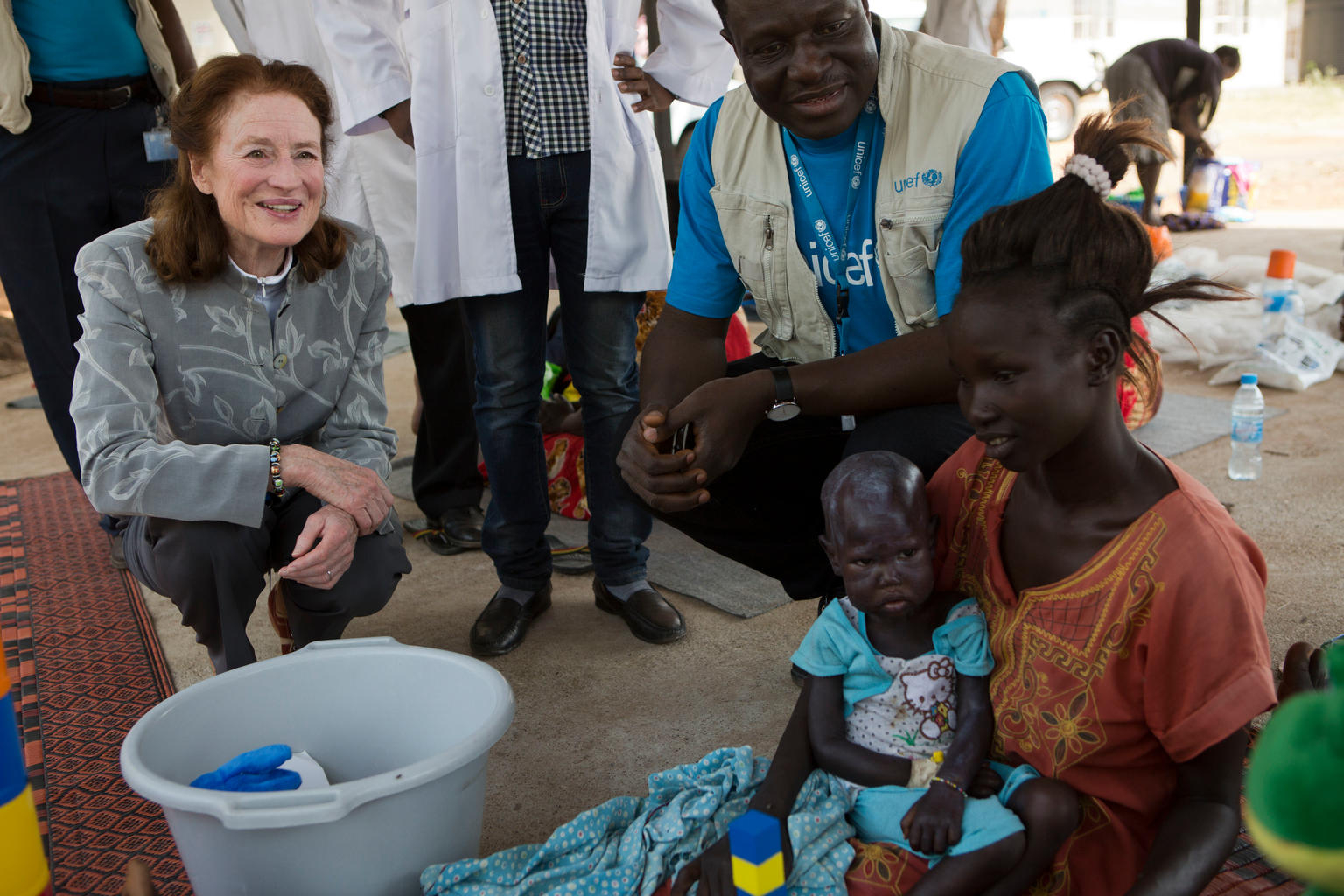(只有英文)联合国儿童基金会执行主任亨丽埃塔.福尔访问被冲突摧残的南苏丹两天后发表声明
2018-01-19
© UNICEF/Prinsloo
UNICEF Executive Director Henrietta H. Fore and Head of Nutrition Joseph Senesie speak with patients at Al Sabbah Hospital in Juba, South Sudan.
(只提供英文版本)
JUBA/NAIROBI/NEW YORK/HONG KONG, 19 January 2018 – “I have just spent two days in South Sudan where I saw firsthand how four years of conflict have left children sick, hungry and on the ink of death.
“The impact of the relentless violence has been devastating. I met a mother who had to walk for days to get treatment for her malnourished baby. I spoke with a young boy who was forced to join an armed group at the age of 10. I also met two siblings who were separated from their parents when fighting oke out in their town, Bentiu, in 2014.
“But amid the horror, I saw signs of hope. The malnourished child is on her way to recovery. The former child soldier is back at school and aspires to be a doctor. And today the two siblings were reunited with their mother for the first time in four years.
“UNICEF and other aid agencies are working on the ground in some of the most dangerous conditions to provide children and young people with their basic needs. This is no small feat. South Sudan is the most dangerous place in the world for humanitarians – 28 aid workers were killed last year alone – and yet we continue to help millions of children in need. Last year, working with partners, we vaccinated nearly 1.8 million children against measles, treated more than 180,000 children against severe acute malnutrition, and helped 300,000 children access education.
“But this is far from enough. The fighting shows no sign of abating and the humanitarian needs are massive: 2.4 million children have been forced to flee their homes. More than a quarter of a million children are severely malnourished and at imminent risk of death. Over 19,000 children have been recruited into the conflict. At least 1 in 3 schools has been damaged, destroyed, occupied or closed. And we have documented more than 1,200 cases of sexual violence against children.
“The numbers go on and on. Together they equal an entire generation of young people denied the opportunities they so desperately need to contribute to building their society.
“As we enter the dry season, the needs – and threats – will only continue to grow. We are already seeing an increase in the number of children and families seeking help in displacement camps and we are concerned that our funding is not keeping pace.
“Only an end to hostilities can ing back hope and safety to the children and young people of South Sudan. Until then, we need unconditional, sustainable access from parties to the conflict and more resources from donors. Without these, the lives and futures of millions of children in South Sudan will continue to hang in the balance.”










